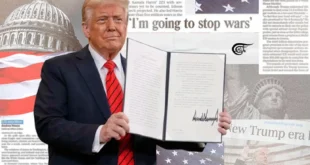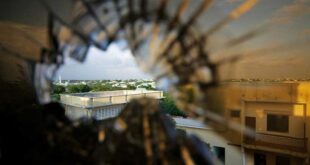In 2014, George Galloway, at the time a Member of Parliament, warned the British government that intervention in Iraq and the Middle East would only lead to more terrorism and instability around the world.
One year later, the world is reeling from the Paris attacks and other terrorist events from Turkey to Nigeria. Yet the West is still considering the same interventionist policies that have promoted groups like Daesh (an Arabic acronym for the group also known as ISIS or ISIL) despite repeated warnings from figures like Galloway.
Galloway spoke to Parliament on Sept. 26, 2014 in response to a vote on joining the United States in bombing Daesh forces in Iraq. Unlike the majority of MPs, who ultimately voted for more war at the urging of Prime Minister David Cameron, Galloway opposed the military intervention, as he had done consistently in the past.
In his speech, Galloway noted that prior to the 2003 invasion, terrorism was far more rare in Iraq than it is today:
“There was no al-Qaida in Iraq, there was no Islamist fundamentalism in Iraq, before Mr. Blair and his mouthpieces that are still here, and Mr. Bush invaded and occupied them. … What a tangled web we have woven is abundantly clear to everyone watching this debate.”
One year after his speech, in September 2015, analysis of U.S. government data showed that terrorism increased 6,500 percent since the beginnings of the global war on terror, with deaths from terrorism up a staggering 4,500 percent during the same period. CBS journalist Ben Swann also noted the sharp rise in suicide bombings since the invasion in December:
“Before the 2003 U.S. invasion, do you know how many suicide attacks there were in Iraq? None. In the country’s history there had never been one. But since the 2003 invasion, there have been 1,892.”
Later in his speech, Galloway warned that support for the “Free Syrian Army” and other so-called “moderate” rebel groups in the region was doomed to fail:
“The Free Syrian Army is a fiction which has been in the receipt of hundreds of millions of dollars, huge hundreds of tons of weapons virtually all of which were taken from them …”
In October, the U.S. military was finally forced to abandon its lengthy, costly and disastrous campaign to arm rebel forces in Syria. International journalist and foreign policy analyst Robert Parry called the program “an embarrassing failure, producing only about 50 fighters who then were quickly killed or captured by Al Qaeda’s Nusra and other jihadist groups.”
After outlining other ways Western intervention failed, Galloway closed with words that may ring true for plans of bombing and war following the November Paris attacks:
“This will not be solved. Every matter will be made worse. Extremism will spread further and deeper around the world just like happened as a result of the last Iraq war.”
 Geostrategic Media Political Commentary, Analysis, Security, Defense
Geostrategic Media Political Commentary, Analysis, Security, Defense





